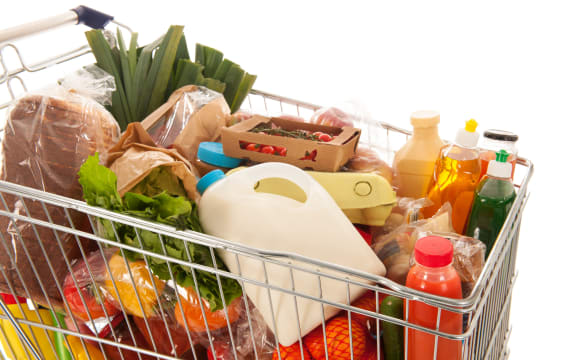High house prices and more expensive petrol and dairy products could be why some people feel like their wages don't meet the cost of living, says an economist.

House prices have risen substantially over the last six years, well ahead of both the Consumer Price Index and wages, says Gareth Kiernan. Photo: RNZ / Rebekah Parsons-King
The Council of Trade Unions surveyed its members and found that 70 percent of respondents feel their incomes are not keeping up with the price of living.
However, the survey conflicts with the official statistics published by Statistics New Zealand.
Inflation, as measured by the Consumer Price Index, had risen by just under 2 percent in the past year and wages have risen by almost 3 percent.
But chief forecaster at Infometrics Gareth Kiernan said the discrepancy could be down to a number of reasons.
He said the CPI does not include housing costs, and house prices have risen substantially over the last six years, well ahead of both the CPI and wages.
Mr Kiernan said that would be affecting people around the country.
"The cost of purchasing your own home and trying to save for that has risen a long way and so that's been a factor I think that will have been influencing people's responses to the survey."
Mr Kiernan said given it was a union conducted survey, it is unlikely there would be a broad section of earners, and that union members tend to be down towards the lower end of the pay scale, so this could also potentially explain why the survey does not reflect the official figures.
He said while the official statistics show that wages have increased by close to 3 percent over the last year, that may not have been evenly spread across all workers.

Photo: 123RF
"It could be that lower paid workers have not been faring as well as other people further up the pay scale."
Mr Kiernan said over the last half of 2018 there were substantial rises in petrol prices, and while the price at the pump had come down, people were still wary of another spike.
He also said dairy prices have been high at times, and dairy was often a staple of people's diets.
Inflation had also been held down by products like electronic goods, which people on tight budgets are unlikely to buy.
Mr Kiernan said that the headline inflation number may not necessarily reflect the costs that were being faced by lower income people.




